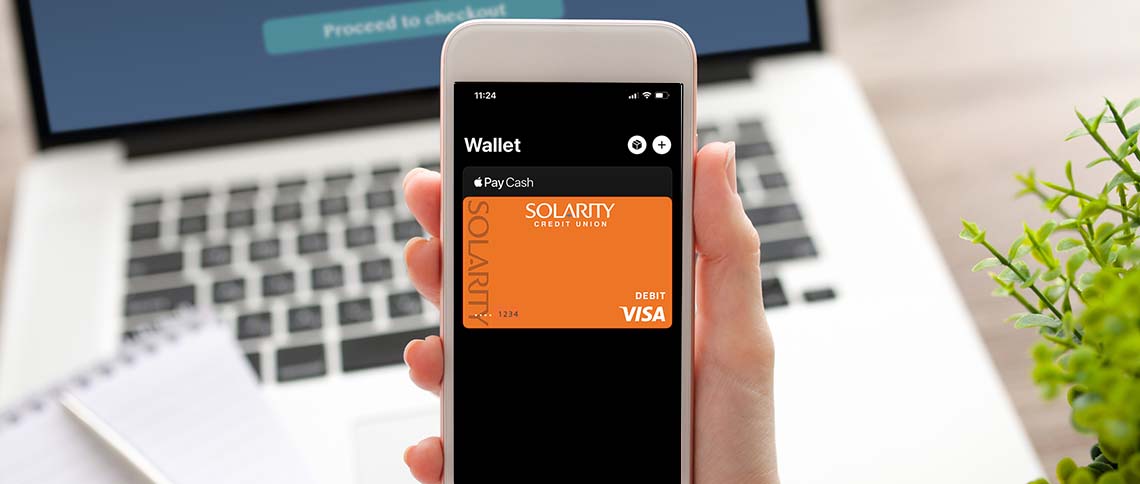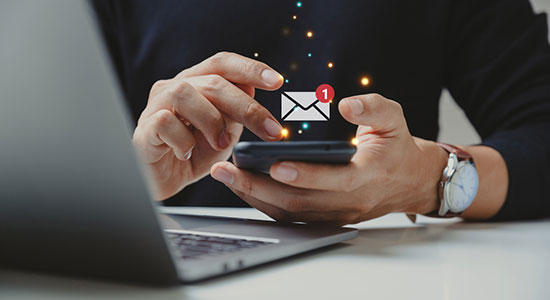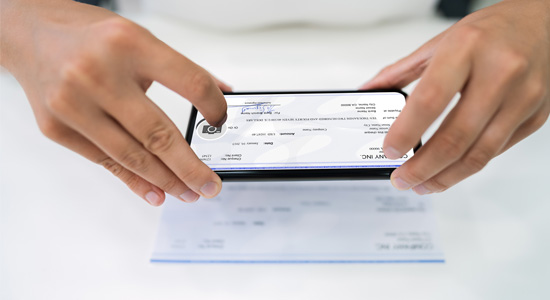
You’ve probably seen that digital wallets have been gaining popularity in the last few years, both with consumers and with businesses. But, what are they, and how could they make your life easier? If you’re thinking about these questions, read on for everything you need to know to decide whether or not you’re ready to embrace this convenient technology.
What is a digital wallet?
Digital wallets are payment tools you add to your phone, smartwatch or tablet, usually in the form of an app. You enter your debit and credit card details into the digital wallet, so the app becomes a virtual version of your card. You can then use the app to make purchases online or at participating locations without having to carry your physical card with you at all times or manually enter your card and billing information. A digital wallet can store numerous payment methods and other virtual records such as event tickets, hotel reservations, coupons and even airplane boarding passes, which lets you keep everything in one place – handy!
How does a digital wallet work?
Just like a physical wallet, a digital wallet holds your various debit cards, credit cards and more. However, it uses secure software to electronically and securely transmit payment details to the vendor you are transacting with. The information is sent using a “token” of random numbers rather than your card number, keeping your actual data hidden.
Different apps allow different types of access and payments, so be sure to download and use the one that works best for you and your needs.
Are digital wallets safe?
A common hesitation with digital wallets is the concern over safety. Digital wallets are potentially more secure than your physical card, as they have extra layers of protection built into them. Physical cards can be lost or stolen and immediately used by anyone who comes across them. But digital wallets use advanced encryption techniques and authentication methods such as passwords, PINs, biometrics (like fingerprints or facial recognition) and two-factor authentication.
In addition, card numbers aren’t typically stored on the device. Instead, digital wallets often use tokenization – rather than transmitting actual card details, a unique token is generated for each transaction, reducing the risk of sensitive information being intercepted or stored by a merchant.
Experts do recommend you password-protect your phone or tablet and keep it locked when you’re not using it. Doing so adds another layer of security to your digital wallet that your physical card doesn’t have. It’s still a good idea to stay vigilant and take precautions: use strong passwords, never share your passwords or other account details and keep a close eye on your transaction history. And, if your device gets lost or stolen, make sure you disable the phone itself and freeze your accounts until they are secure again.
What are some of the most common digital wallets?
Common digital wallet apps include Apple Pay, Google Pay, Samsung Pay, Paypal, Venmo and Zelle.
There are also some “closed” digital wallets, like the Starbucks app, that are designed to be used only at a specific store.
How do I set up my digital wallet?
Enter your card information into the app or site of your choice. For your security, the card issuer may send you a one-time PIN or password as part of its authentication steps. Your information will then be encrypted, and you will only be able to use the wallet when you unlock your device and authorize the wallet’s use. For more information, visit our guide to setting up digital wallets.
How do I make a payment or purchase with my digital wallet?
To make a payment, unlock your digital wallet, select your preferred payment method and hold it close enough to the card reader to transmit your payment details. It usually takes just a few seconds, making checkout fast and easy.
Pros of a digital wallet:
- No more filling in your card number and billing details every time you check out online or fumbling for your wallet in the store
- If you forget your physical cards, your digital wallet makes a great backup
- Your payment information is saved in one protected, central location
- You can store other information in your digital wallet such as gift cards, tickets and boarding passes
- In many ways, digital wallets are safer with more security features than physical cards
- Leave your card at home! You already likely carry your phone everywhere you go, so a digital wallet adds an extra level of convenience and security
Cons of a digital wallet:
- Not all merchants accept them yet, so you may still have to bring your card with you to certain places
- It relies on your device and battery life; your device can also be lost or stolen (another great reason to password-protect your phone!)
Despite the continued growth in mobile wallet usage, 41% of members who do not use a mobile wallet say it is because they don't know what it is or how to use it, according to a 2024 report by PSCU. Now is the time to learn! If you’d like assistance adding your Solarity debit and credit cards to your digital wallet, we can help. Stop by one of our branches or give us a call today and one of our Financial Guides can help you get things sorted out.
What's your Solarity story?
We're on a mission to tell the stories of our members and how they are living their best lives. Do you have a Solarity story to share?



